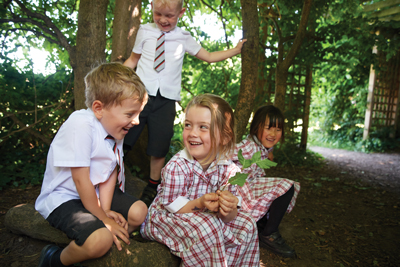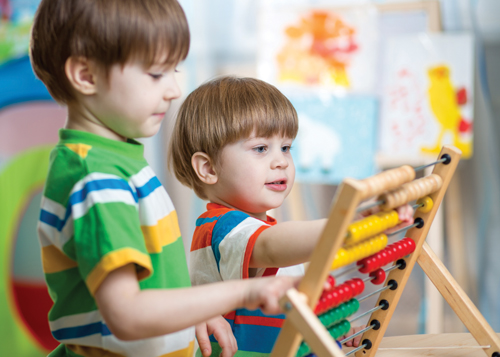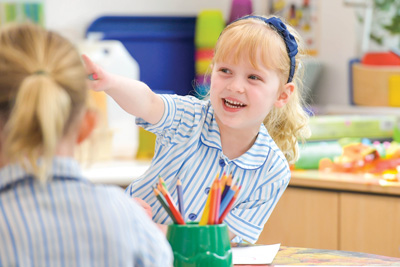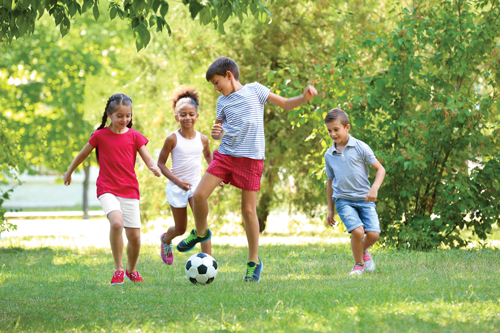
by Charlotte Moore
St Christopher’s Prep
In a world where education is often evaluated by standardised testing and one-size-fits-all metrics, nestled in the heart of a vibrant community, small preparatory schools are quiet powerhouses that have a unique charm. They offer a distinct advantage over larger educational institutions, such as smaller class sizes, a strong sense of community, and individualised attention from teachers. They punch well above their weight through a compelling philosophy that sets them apart – the ‘try everything’ approach to learning.
This philosophy encourages pupils to engage in a wide range of experiences, regardless of their interests or perceived talents. This inclusive model is particularly feasible in small prep schools, where the environment is often more adaptable and personalised than in larger institutions. The imperative of a ‘try everything’ philosophy is not just to expose pupils, but to embed a spirit of curiosity and cross-disciplinary agility.
The encouragement to engage with various subjects and extra curricular activities reflects a deeper understanding of the education process – it’s through experience and reflection that genuine learning takes place. Pupils are taught to value the journey of learning, to embrace failures as learning opportunities, and to develop a growth mindset that views challenges as stepping stones to mastery.
Pupils are invited to dip their toes into a variety of subjects and extra curricular activities – from arts to sciences, sports to technology – and discover passions they may not have known they had. They might find themselves coding a robot in one class, sewing a blanket in another and rehearsing a Shakespearean play in the next.
The key to this method is the idea that true learning comes from exploration and experimentation, which isn’t always found in textbooks. In a rapidly changing world, it is ever more important to be adaptable and have a broad skill set as well as specialised knowledge. From teamwork and leadership in sports, critical thinking in debate clubs, to innovation in STEM projects, pupils become well-equipped for future challenges. Such an education cultivates adaptive individuals who can thrive in the dynamic environments of higher education and the professional world.
Small class sizes of typical prep schools allow for highly individualised attention. Teachers are really able to nurture the curiosity of each pupil, encouraging them to take risks in a safe and supportive environment. Not only does this foster a love of learning, but it also helps to build resilience and confidence, both of which are qualities that are essential in both personal and professional lives.
A small prep school often has a much closer-knit community which provides more leadership opportunities. With fewer pupils to compete with for positions on school councils, drama productions, or as school prefects or team captains, pupils are able to step up and lead in more areas. This close-knit environment fosters a greater sense of responsibility and community engagement.
Small prep schools are able to promote an inclusive culture where hobbies and abilities are not dictated by societal expectations but by personal exploration and growth.
By encouraging all pupils to get involved, and try everything, teachers are creating opportunities for collaboration. It also helps break down barriers and fears. Those pupils who may have been reluctant to join a robotics club or a sewing club, for fear of not fitting in, may discover a love for engineering or garment making. Not everyone is naturally gifted at academics or sports but by being encouraged to join in, those who may have thought they were not great, may still find joy in doing it.
Subjects can often be compartmentalised but this ‘try everything’ approach supports a cross-disciplinary learning. Pupils applying their historical knowledge in English discussions or their artistic sensibilities in science projects shows a holistic educational approach that small prep schools champion.
Smaller class sizes and a more diverse lesson curriculum helps broaden the horizons of pupils so they become more rounded human beings when they progress to their senior school. These people are prepared to not just navigate the world but shape it into something better. A smaller school can be an incubator for future leaders. With the access to teachers and the excellent resources and opportunities the pupils have, these schools help ignite curiosity and arm the pupils themselves with the tools needed to build a fulfilling life. Alumni of small prep schools often attribute their success to the versatility and adaptability that was nurtured in their early education.
The ‘try everything’ philosophy at a small prep school is a powerful tool for education and is not something to be missed. It champions the idea that pupils should be encouraged to embrace a multitude of experiences, helping to shape them into adaptable, curious and innovative thinkers. In schools like these, the power of learning is limitless, and the outcomes are as diverse as the opportunities that they provide.
St Christopher’s Prep is an outstanding independent co-ed prep school. Please call 01273 735404 to discover how we could be the perfect match for your child’s educational start.
www.stchristophershove.org.uk




















